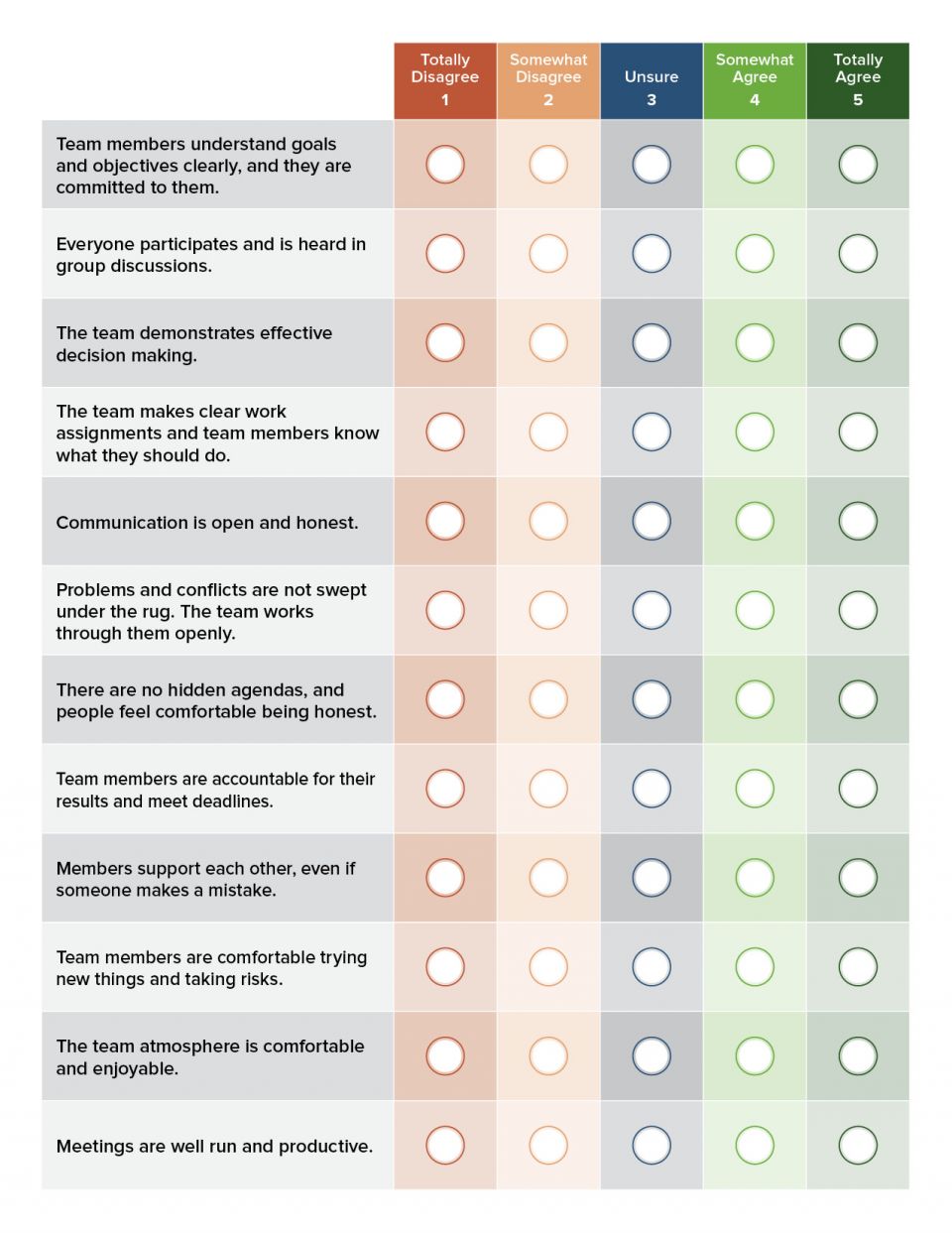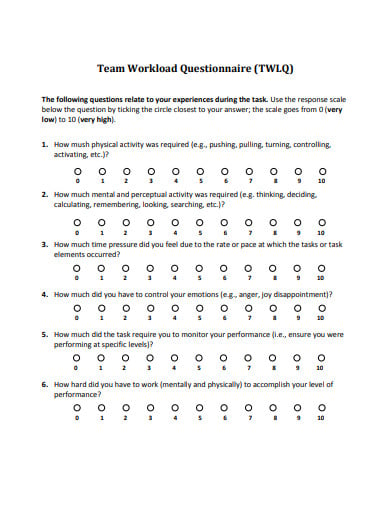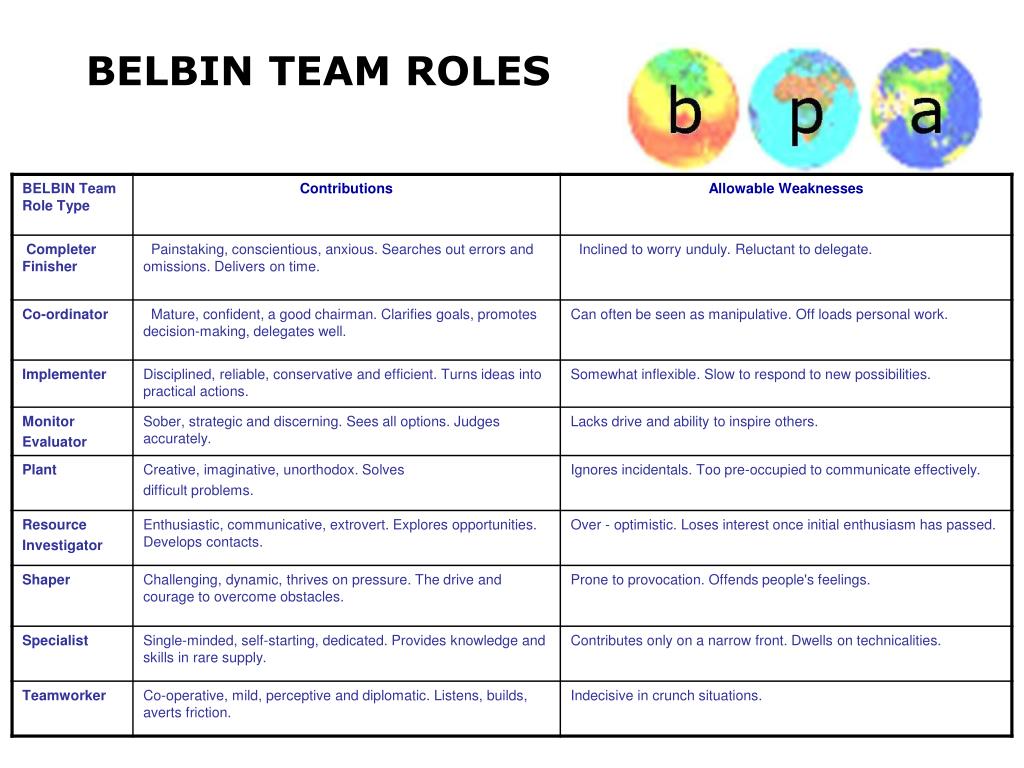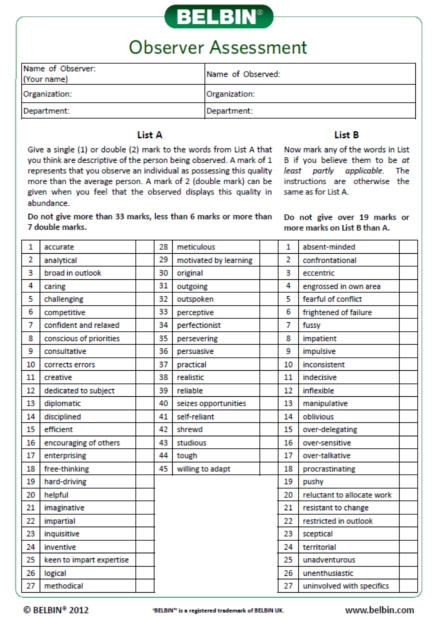
Additionally, it is not normed, lacks the Specialist role and the benefit of feedback from colleagues, and does not offer Team Role feedback. The inventory is protected by Belbin's copyright and cannot be reproduced in any form. The Belbin Team Inventory first appeared in Belbin's book Management Teams: Why They Succeed or Fail (1981). In fact, nine separate clusters of behaviour turned out to be distinctive and useful, with the balance required dependent on the purpose and objectives of the team. those with a range of different behaviours. The most successful companies tended to be those with a mix of different people, i.e. In fact, it became apparent by looking at the various combinations that it was not intellect, but balance, which enabled a team to succeed.

However, the outcome of this research was that certain teams, predicted to be excellent based on intellect, failed to fulfil their potential. At first, Belbin hypothesised that high-intellect teams would succeed where lower-intellect teams would not. Those participating were invited to take a battery of psychometric tests and teams were assembled on the basis of test scores. The experiment was designed along scientific lines with careful measurement at each stage. It contained all the principal variables that typify the problems of decision-making in a business environment. A management game was designed to reproduce work life. Over a period of ten years, he carried out extended observational research to determine which factors influenced team failure or success. A person may and often does exhibit strong tendencies towards multiple roles.īelbin first began studying teams at Henley Management College in the 1960s.

The assessment includes 360-degree feedback from observers as well as the individual's own evaluation of their behaviour, and contrasts how they see their behaviour with how their colleagues do.īelbin himself asserts that the Team Roles are not equivalent to personality types, and that unlike the Myers-Briggs Type Indicator, which is a psychometric instrument used to sort people into one of 16 personality types, the Belbin Inventory scores people on how strongly they express behavioural traits from nine different Team Roles. The Inventory assesses how an individual behaves in a team environment. It was devised by Raymond Meredith Belbin to measure preference for nine Team Roles he had identified eight of these whilst studying numerous teams at Henley Management College. The Belbin Team Inventory, also called Belbin Self-Perception Inventory ( BSPI) or Belbin Team Role Inventory ( BTRI), is a behavioural test. ( Learn how and when to remove this template message) ( March 2017) ( Learn how and when to remove this template message)

It may require cleanup to comply with Wikipedia's content policies, particularly neutral point of view.

A major contributor to this article appears to have a close connection with its subject.


 0 kommentar(er)
0 kommentar(er)
